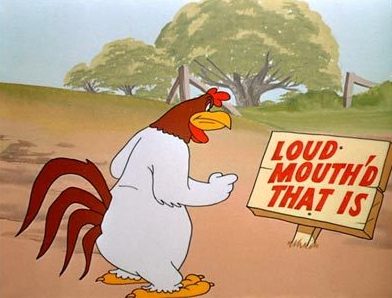"May angels lead you in."
"Hear You Me" isn't exactly a phrase we tend to use all that often in the modern vernacular. After all, it's kinda' Yoda-esque to rearrange words in that particular fashion. "Hear YOU Me?" Wouldn't that be ten times easier to understand if it just said "listen to me" (where the sentence remains imperative and the word "you" is implied thanks to the more active verb)?
Like I said -- kind of unwieldy for everyday conversation.

"What I say what? Now hear you me, Mr. Smarty Pants..."
Funny thing is --
As languages evolve over generations and centuries, certain words, phrases, spellings, and semantic conventions typically end up being standardized or simplified in order to help the spoken and written word keep up with the times. "Colours" become "colors." "Inflammable" becomes "flammable." And longer, more complicated idioms typically end up finding themselves chopped, cropped, and condensed in order to make themselves easier to remember to the common ear.
For example:

"All that gliSters is not gold."
- Prince of Morocco The Merchant of Venice, II.vii
"Glister?" Who in the blue hell even knows what a "glister" is these days, anyhow? And thus we end up with a more modern approximation, like so:

Fun fact/ gratuitous pot-shot: "Glitter" was hardly gold OR platinum for that matter. Seriously, this album is terrible.
But anyway --
Words and phrases can change over time. And that means that even while we're speaking quote-unquote "English" today, the language that we take for granted as "standard" is actually a heckuva' lot different from the English that was spoken by our grandparents, our great grandparents, and the countless generations that preceded them all the way back to antiquity.
"Hear You Me" is precisely the type of clunky old phrase that time tends to erase. It basically means "listen up." But to the modern ear? It's almost as if the phrase is missing a word or two. That said -- waaaay back in the heyday of William Shakespeare? This kind of thing would actually sound quite commonplace. After all, when 'ish got real (i.e. -- like, for example, when a bunch of people ended up dead all at once) they were often known to start talking all super-formal and stuff. Kinda' like this:
"Good-night, sweet prince;Wait a minute -- singing to dead folks in sentences that could probably benefit from an extra noun of direct address?
And flights of angels sing thee to thy rest!"
- Horatio Hamlet, V.ii.
Oh yeah. I've heard that one before:
"May angels lead you inThe syntax is tricky. But the message is clear: "Hey man, I really miss you. And I hope you get to heaven."
Hear you me, my friends
On a sleepless road the sleepless go
May angels lead you in."
Betcha' Shakespeare WISHES he'd thought of that!
*Are you viewing this article anywhere besides Blogger? Cool! Click here to check out the music video that's embedded in the original post.

Seems that glister has a history of use as a name for an enema - Hmmm
ReplyDelete